Nvidia Announces QODA, Bridging Quantum-Classical for HPC and AI
Nvidia "QODA make it work," and so it did
Nvidia today announced its Quantum Optimized Device Architecture (QODA), a new computing platform that aims to bridge the gap between quantum and classical applications. QODA marks a departure for Nvidia's generally proprietary stance, and leverages an open approach toward quantum computing and its integration with classical systems not unlike those we are used to handling in our daily lives.
NVIDIA's QODA aims to make it easier for compute scientists to leverage the strengths of Quantum Computing (QC) in the development of applications and workload acceleration techniques. QC does away with the zeroes and ones in the classical bit and replaces them with qubits, a now-approaching-mainstream unit that can actually represent both states at the same time, opening up vast speedups in previously-unworkable problems.
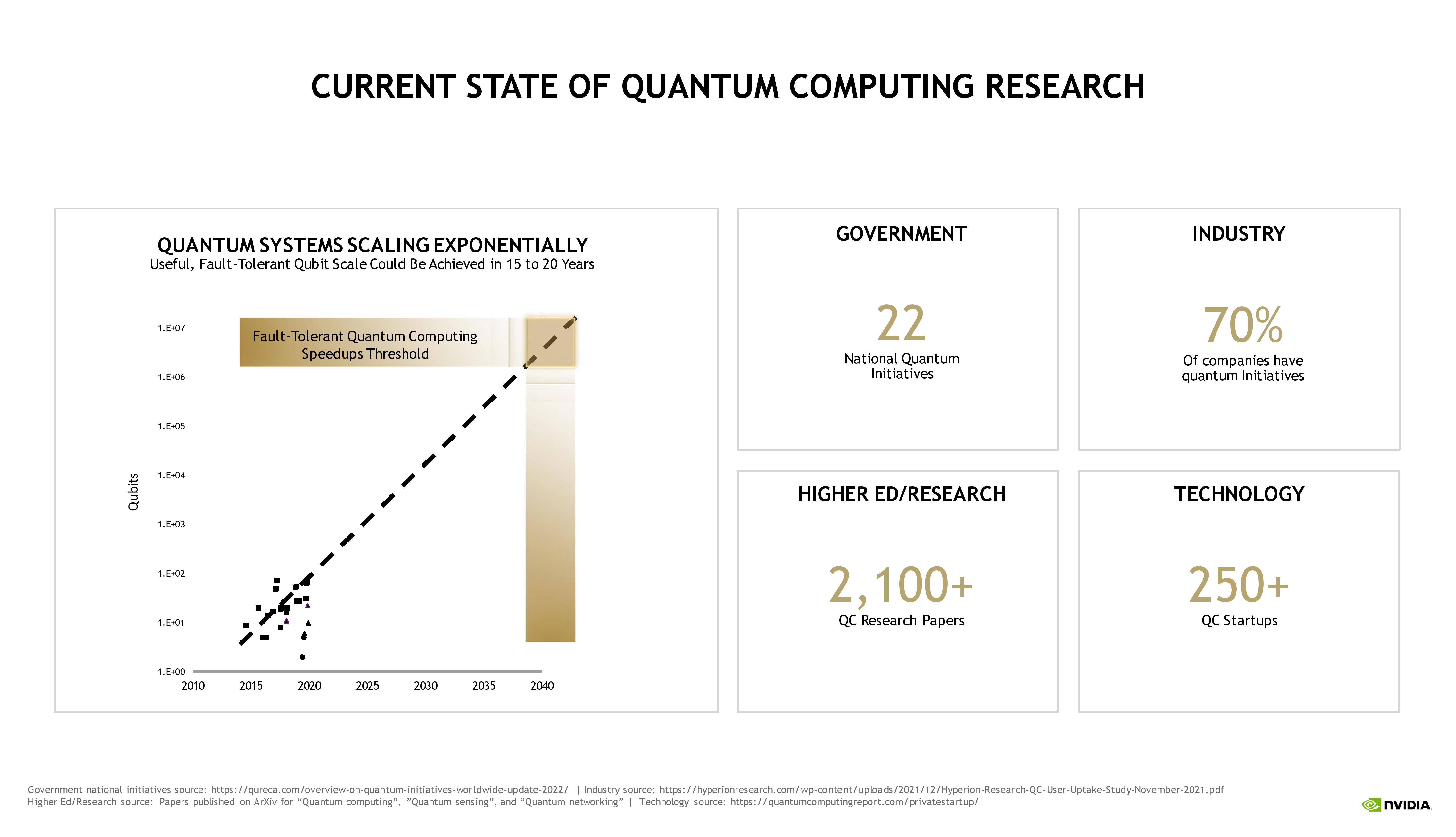
With the number of different approaches to quantum computing, from IBM's own superconducting transmon qubits, passing through silicon quantum dots, topological superconductors, trapped ions, and other technologies, the current quantum computing landscape isn't all too different from that of the early semiconductor days. But QODA’s high-level language will support every kind of quantum computer, and its compiler will be available as open-source software.
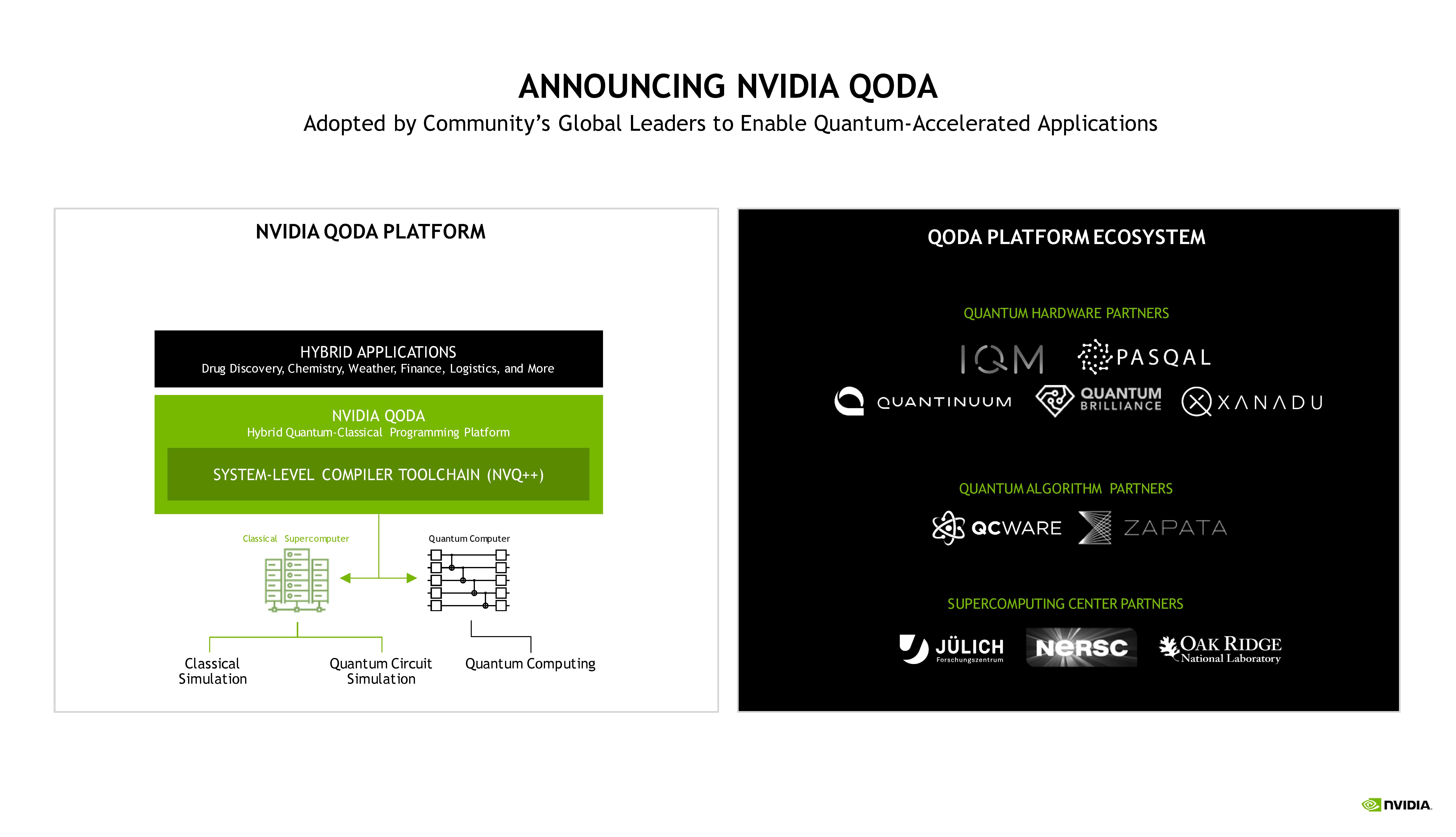
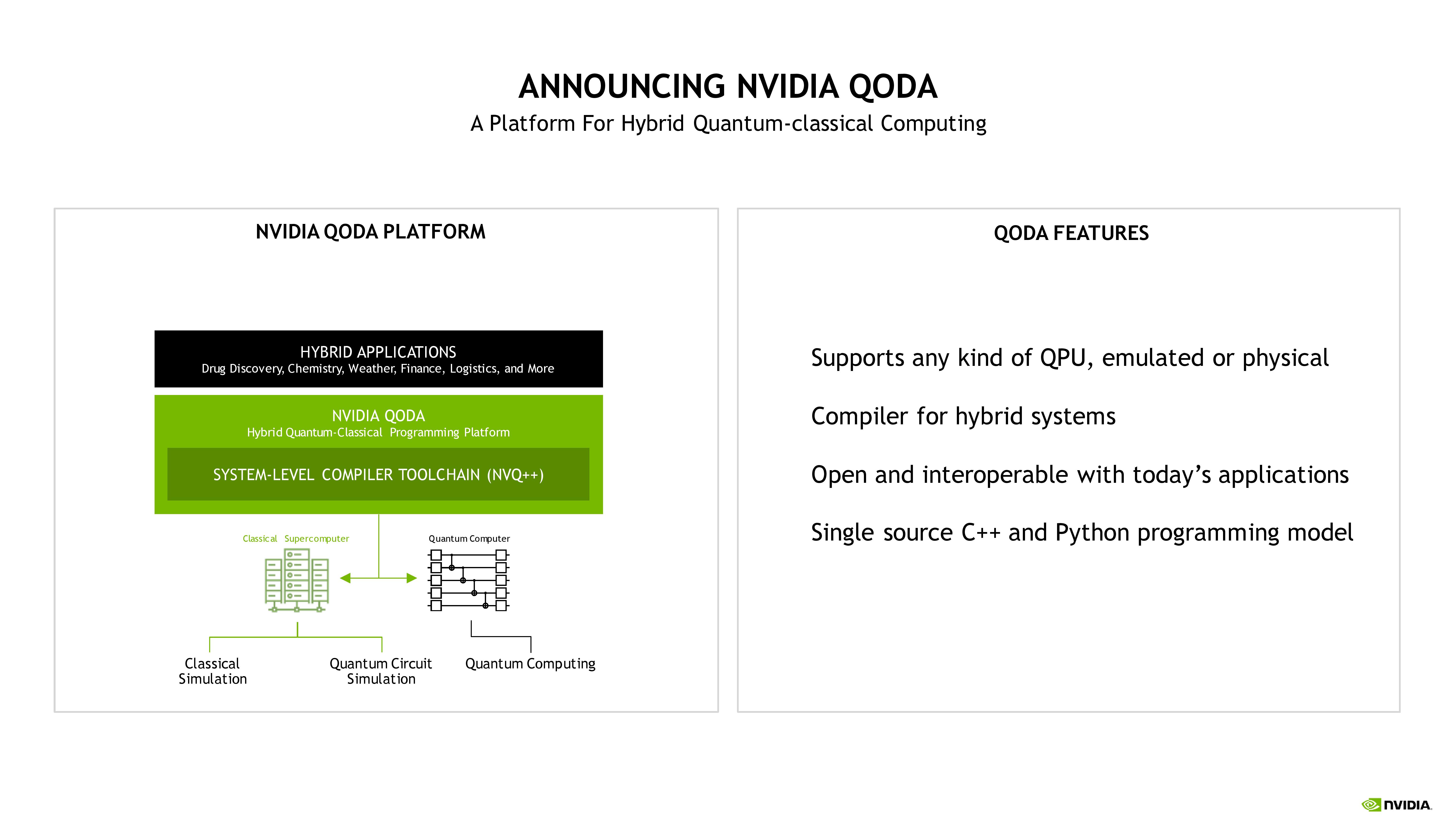
Nvidia envisions QODA to be the glue that ties it all together. Acting like a software bridge, Nvidia's QODA will enable developer choice for running their quantum jobs on GPUs or quantum processors. All that separates them is a simple function call.
Quantum computers and their hardware CPUs, the Quantum Processing Unit (QPU), are ideally suited to simulating processes at the atomic level. That could enable fundamental advances in chemistry and materials science, unleashing domino effects in everything from more efficient batteries to more effective drugs.
In separate experiments, researchers with the Jülich Supercomputing Center near Cologne used quantum machine learning to simulate how proteins bind to DNA strands and classify satellite images of Lyon, France.
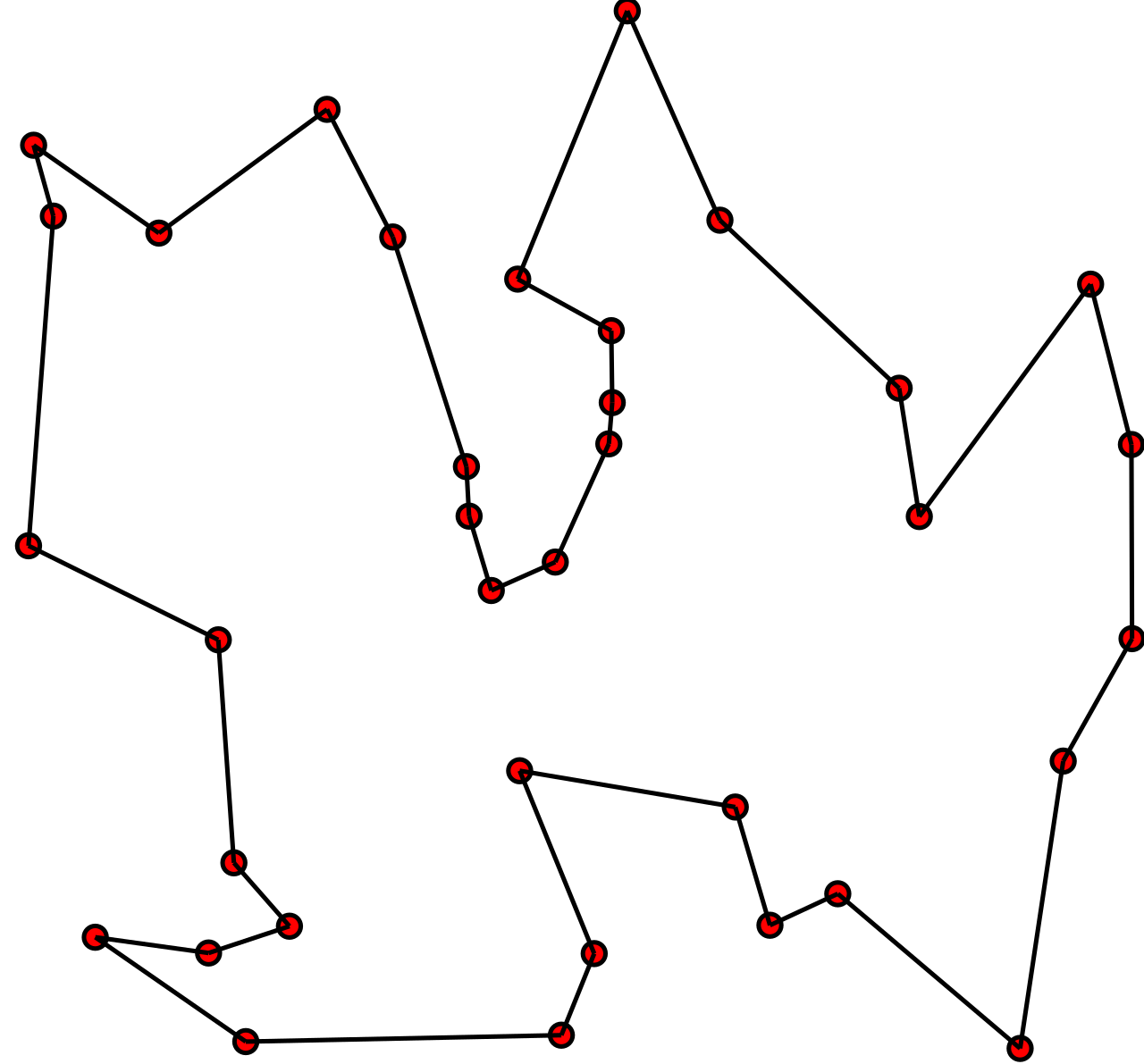
Thorny logistics issues — like the traveling salesman problem, deliveries, passenger pickups, or even flight routings — are also being solved for maximum efficiency thanks to quantum computing. Gone will be the days of logistics solutions such as UPS's "never turn left" navigation system.
In one experiment, a quantum computer recently installed at Jülich showed the most efficient way to route nearly 500 flights, demonstrating the technology’s potential in ways that will directly impact people's lives. Life is short already, why waste it on delayed airplanes?
While several quantum computers, from integrated systems to scalable, individual QPUS, are already available, none have yet achieved the speed, reliability, ease of deployment and use to tackle commercially-relevant jobs. But researchers see a way forward: hybridization.
“For a long time, we’ve had a vision of hybrid systems as the only way to get practical quantum computing — linked to today’s classical HPC systems, quantum computers will give us the best of both worlds,” said Kristel Michielsen, who leads the quantum program at the Jülich Supercomputing Center near Cologne. “We can’t go on with today’s classical computers alone because they consume so much energy, and they can’t solve some problems,” she continued. “But paired with quantum computers that won’t consume as much energy, I believe there may be the potential to solve some of our most complex problems.”
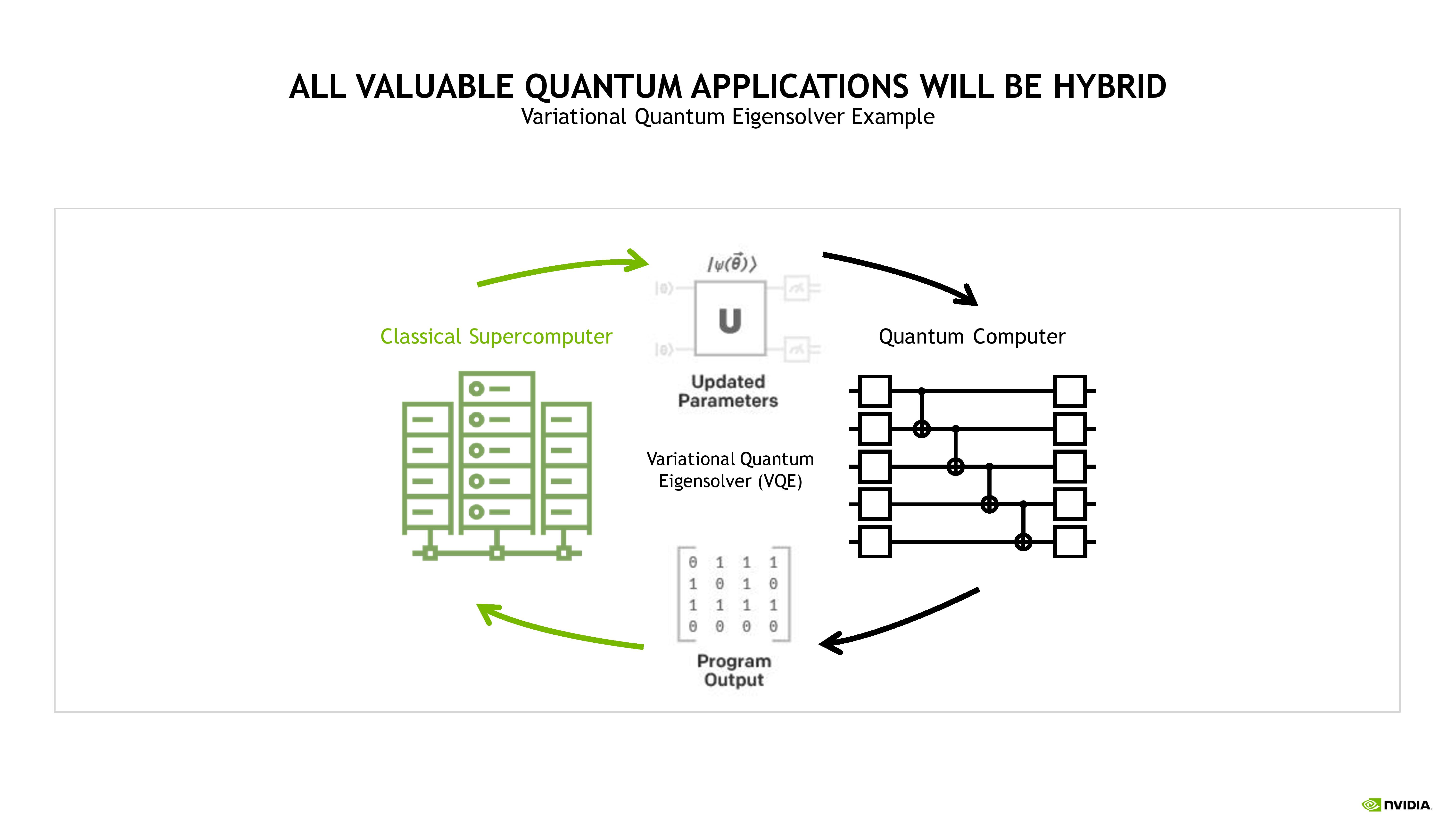
HPC and AI specialists will be able to leverage Nvidia's QODA in an environment that's familiarly classic, easily being able to leverage the probabilistic-based approach to computing that's the hallmark of quantum.
“Scientific breakthroughs can occur in the near term with hybrid solutions combining classical computing and quantum computing,” said Tim Costa, director of HPC and Quantum Computing Products at Nvidia. “QODA will revolutionize quantum computing by giving developers a powerful and productive programming model.”
Nvidia's QODA enables access not only to today's quantum processors, which are actually simulated on Nvidia's own GDX SuperPod systems and GPU-based accelerators, but also tomorrow's. QODA leverages Nvidia's work in cuQuantum, a highly-specialized software application that allows Nvidia customers to develop individual quantum circuits, simulating their performance and characteristics before actual deployment.
With QODA, developers can build complete quantum applications simulated with NVIDIA cuQuantum on GPU-accelerated supercomputers, opening up doors that had, until now, remained shut.
To cap off its QODA announcement, Nvidia at the Q2B conference in Tokyo announced QODA collaborations with today's leading quantum hardware providers: IQM Quantum Computers, Pasqal, Quantinuum, Quantum Brilliance and its diamon-based qubits, and Xanadu with its impressive Borealis QPU. Quantum software providers QC Ware and Zapata Computing have also partnered with Nvidia, and the supercomputing centers Forschungszentrum Jülich, Lawrence Berkeley National Laboratory, and Oak Ridge National Laboratory have all thrown their gauntlets with Nvidia's solution.
This doesn't mean that Nvidia's approach will be the exclusive platform for these approaches, or anything like it. But it does demonstrate confidence in the company's solution as yet another piece to the quantum computing puzzle. And what a glorious puzzle it is.
Nvidia QODA Announcement Press Deck
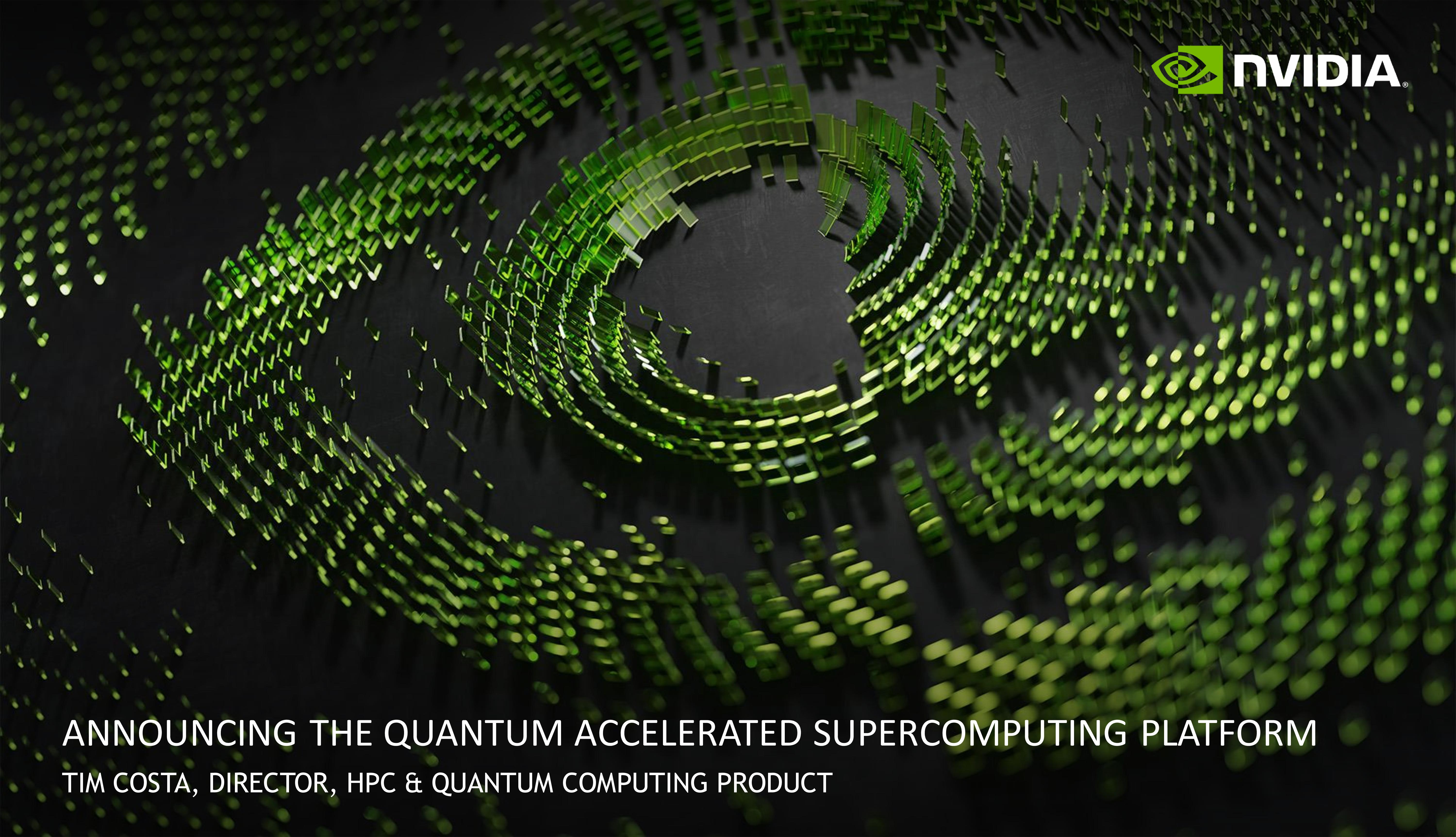

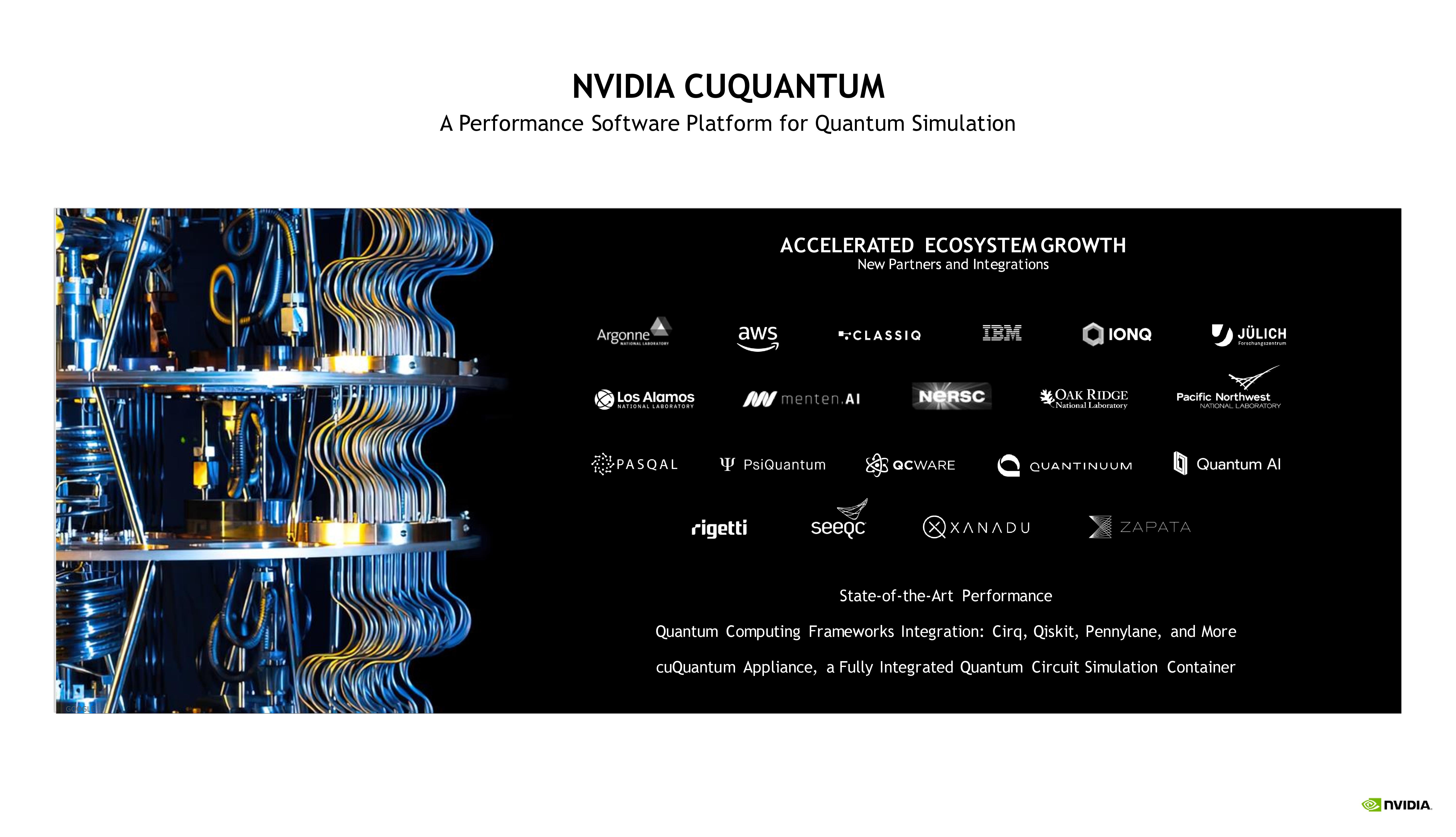

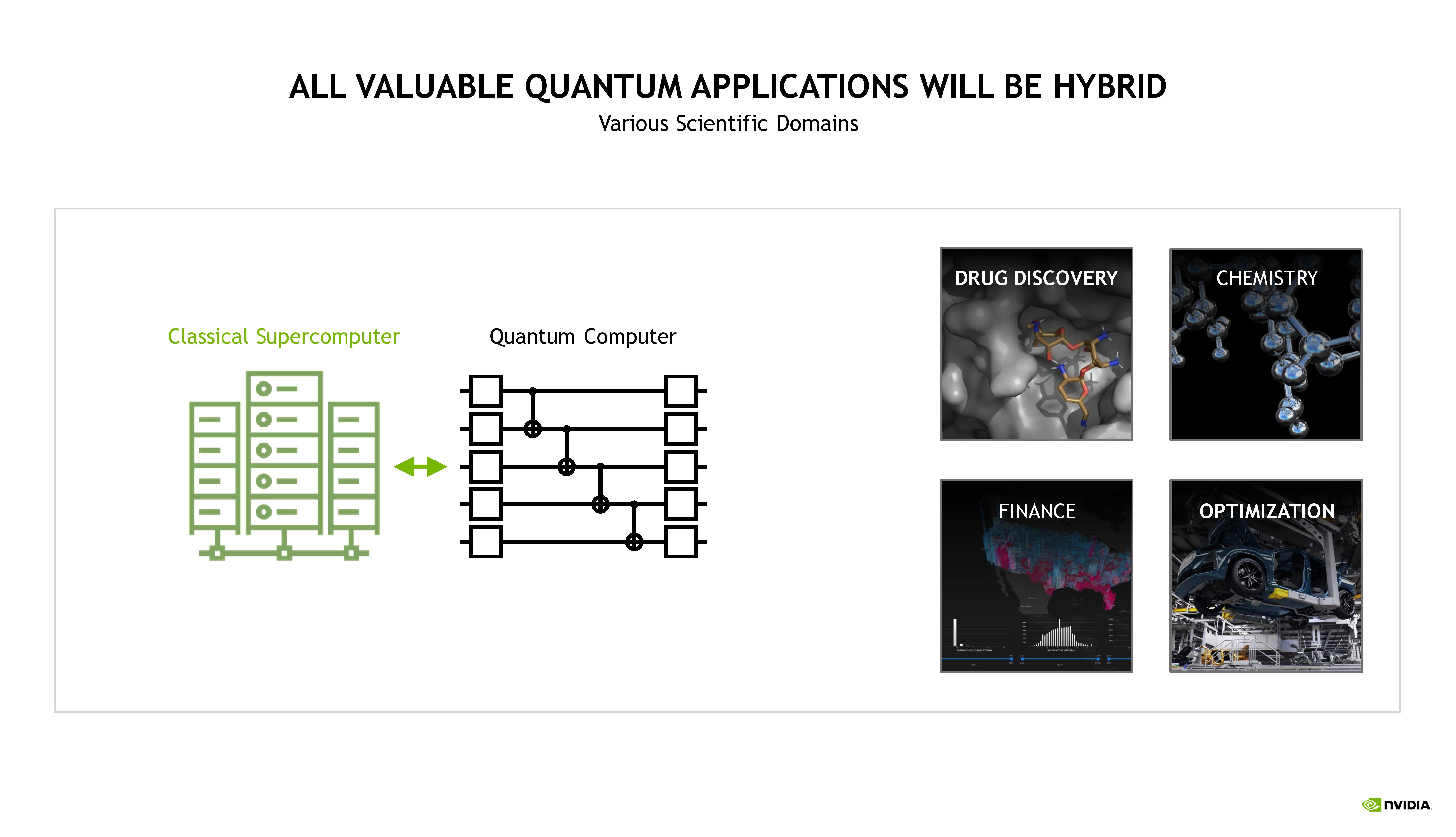
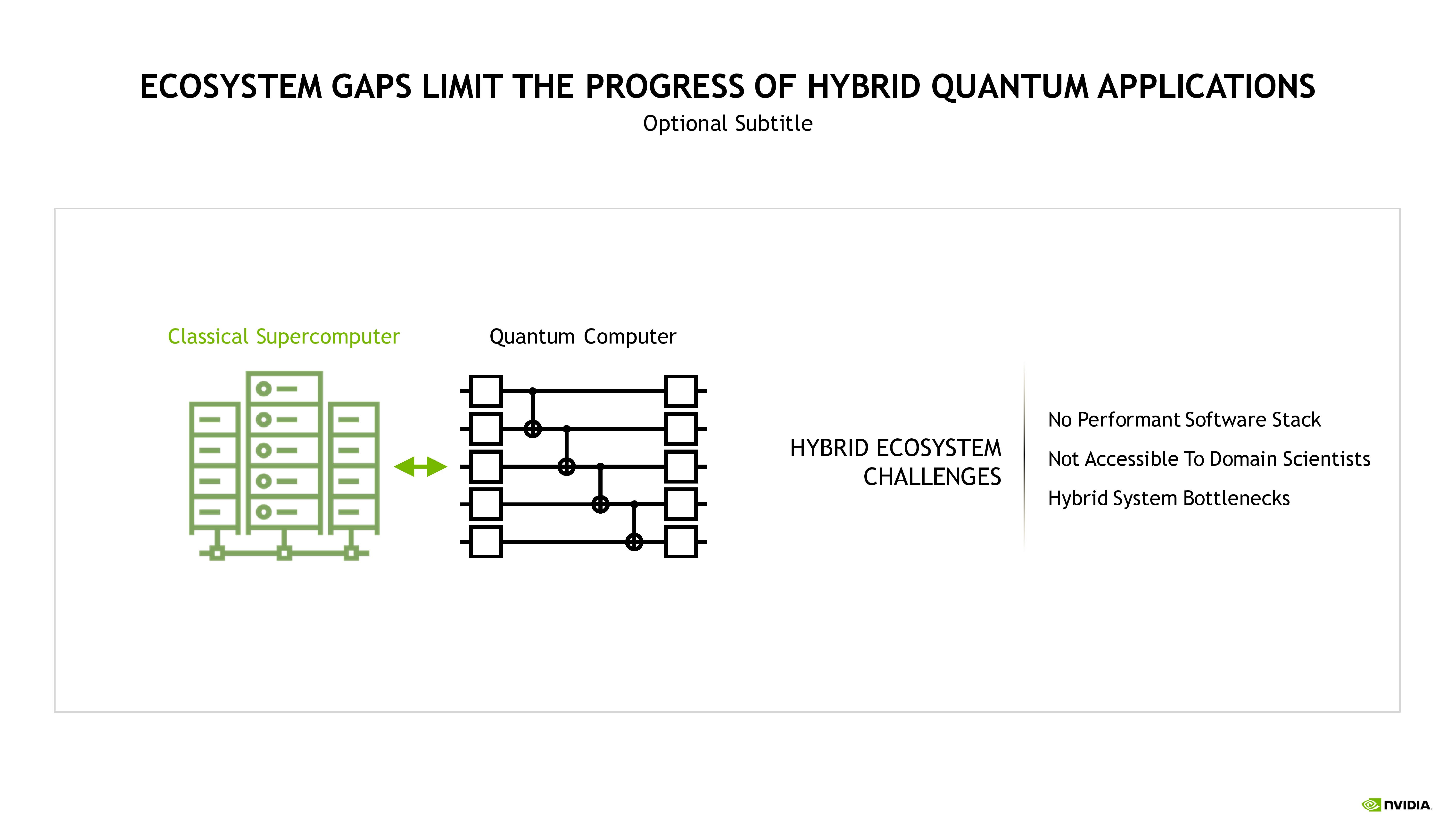


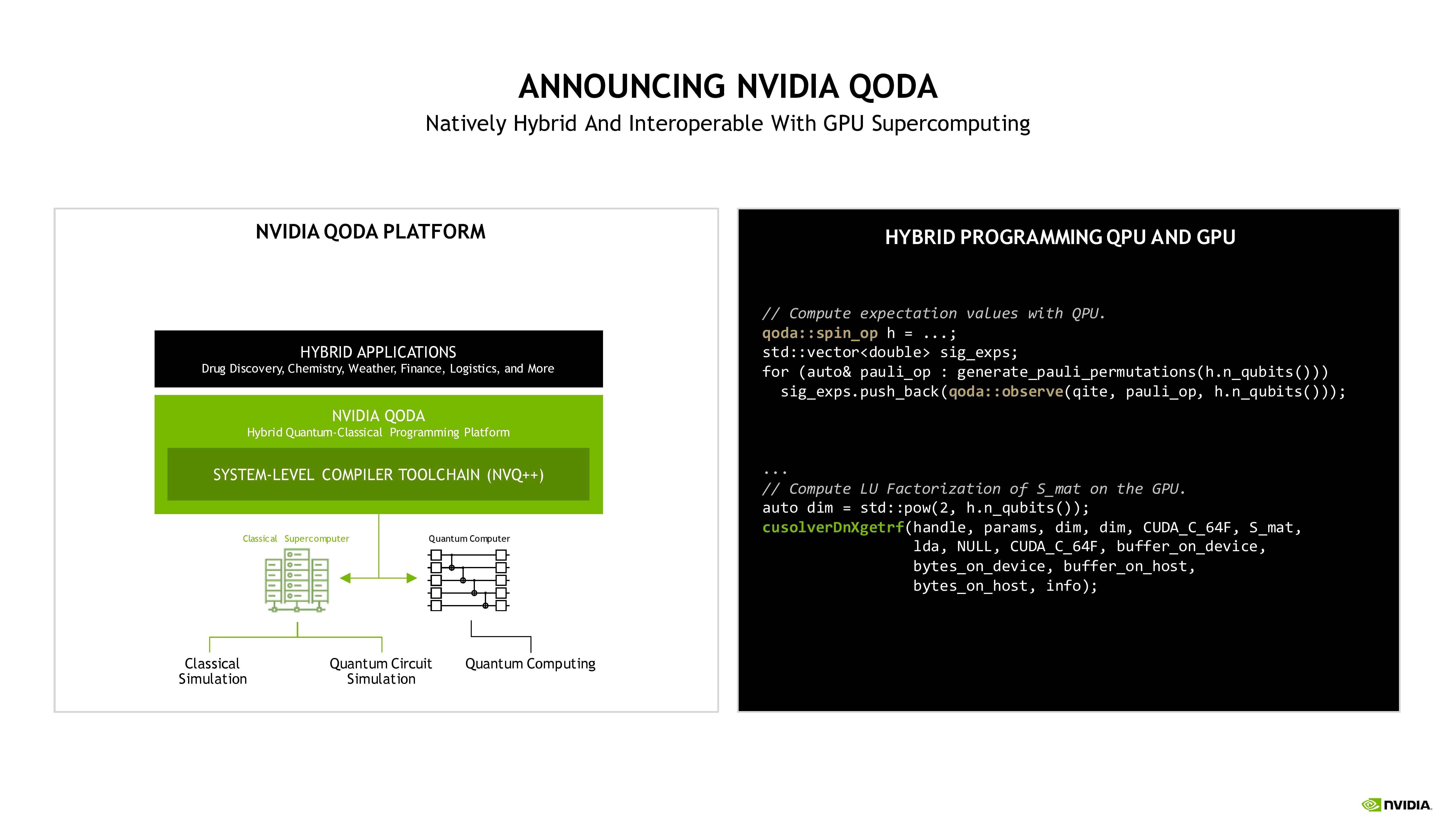
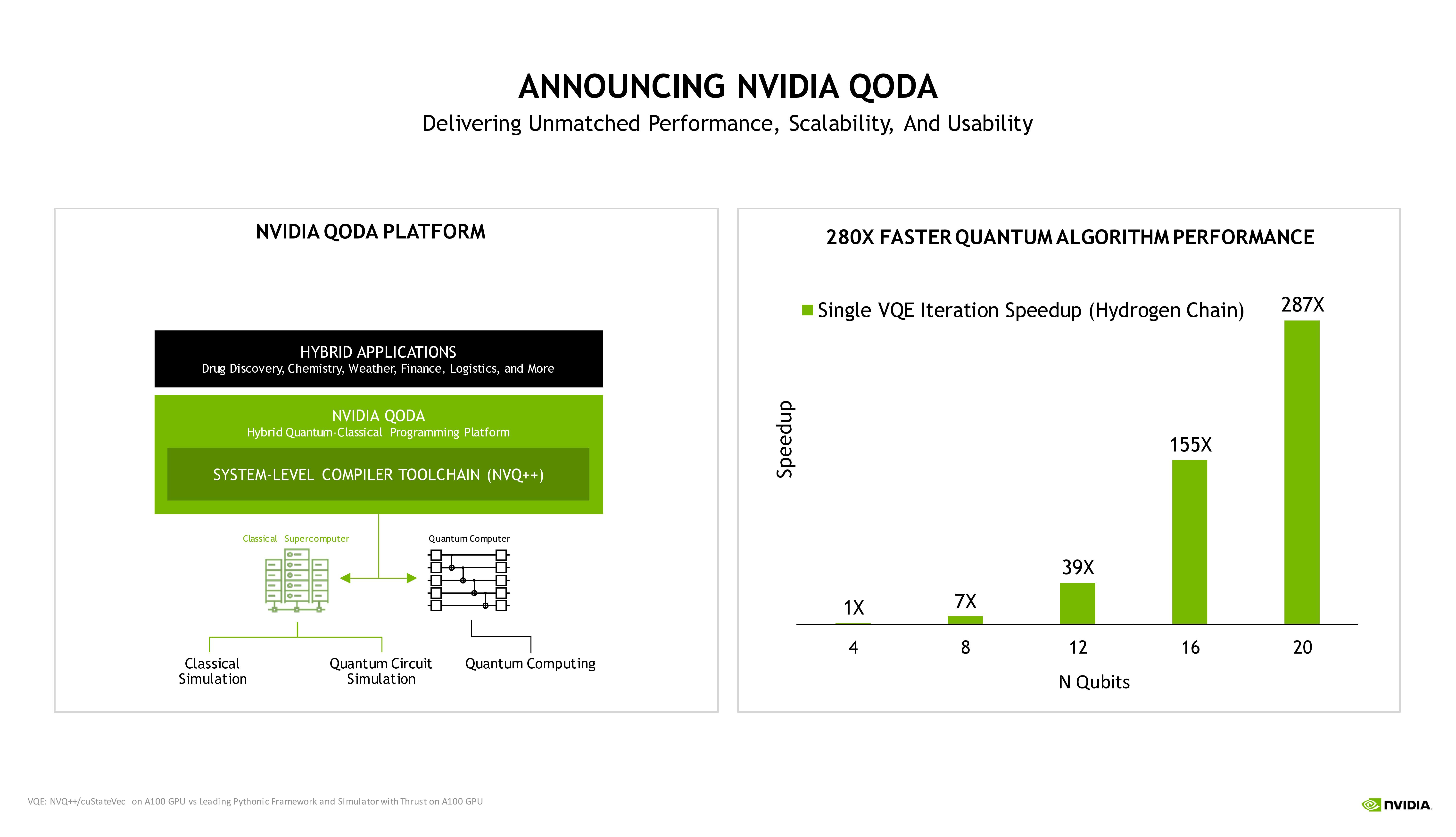
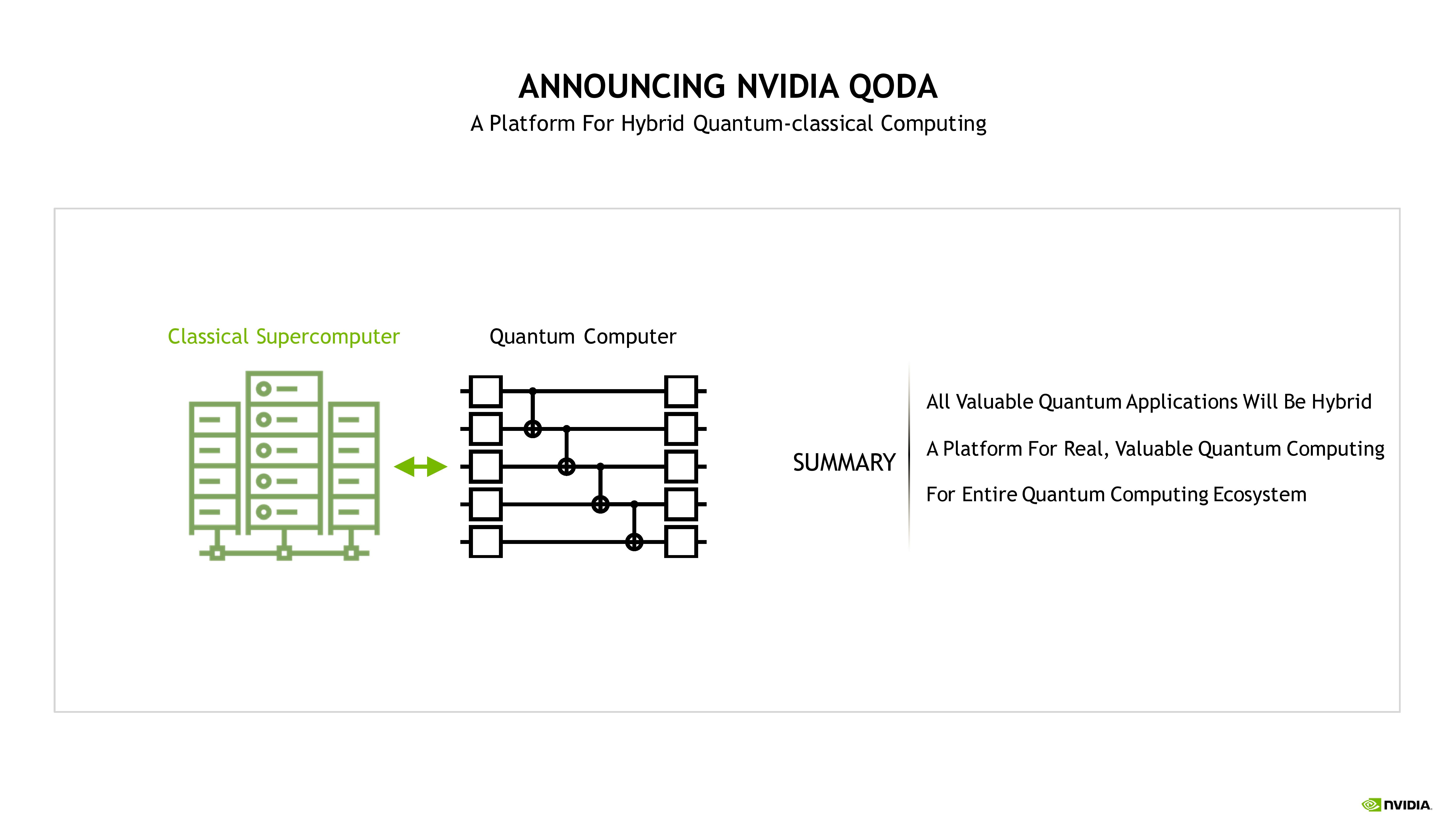

Get Tom's Hardware's best news and in-depth reviews, straight to your inbox.

Francisco Pires is a freelance news writer for Tom's Hardware with a soft side for quantum computing.